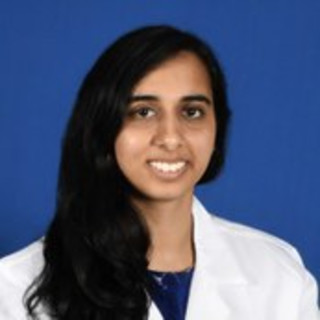In medicine, it is so easy to adapt the mindset that you should put off what you want to do in life until your training is over. “It’ll be easier after pre-med, or after medical school, or after residency,” is a common way of thinking, but what I’ve found is that each phase of your training in medicine has its own unique set of challenges and responsibilities, which makes each phase equally difficult in its own way. This has shown me the importance of compartmentalization, and that you must continue to live your life throughout each phase of training, and learn to adapt and change through each phase both personally and professionally.
Many of us who go into medicine have a planning personality type. To a certain degree, our chosen field forces us to plan far into the future. To get into medical school, you must make these grades. To get into residency, you must perform a certain way on your rotations. To get into fellowship, you must have X amount of publications. However, the field also has a high degree of uncertainty, more so than other professions, brought in by the match process. The match process involves making a prior commitment to a job before knowing where that job will be or who that job will be with. Sometimes the match has us end up exactly where we were hoping to be, and sometimes it is very far off from what we had hoped. The match process is one of the major ways in which we must learn to accept uncertainty in our careers.
The job of a physician is one that requires intense training and deep levels of knowledge. Physicians often deal with emergencies and must be able to make fast decisions. These decisions are often based on an algorithm or pre-specified treatment regimen. However, much of medicine, especially the discipline of surgery, requires you to be flexible and change plans continually. In retina surgery, we always start the case with a plan in mind, but our plans change often as we may encounter unexpected pathology, difficult anatomy, or may need other tools to achieve our goal. Each retina surgical case is different and requires active thinking on the part of the surgeon. Physicians must also be flexible and be able to think on their feet when it comes to conversations, especially difficult conversations, with patients. Doctors often deliver the worst news of a person's life and must be able to handle that in a diplomatic and comforting manner.
During the course of my training, I’ve met people who have raised children in medical school, residency, and fellowship. I’ve seen people undergo catastrophic life events during training and survive. I’ve seen people find their partners and get married, have a baby, and adopt pets. The level of commitment and flexibility it takes to balance a career as intense as medicine and to deal with whatever hand life is dealing you at the moment is immense. The book “When Breath Becomes Air,” by Paul Kalanithi, is an example of the resilience of a two-physician family through medical training during a catastrophic life event and how to balance career and life challenges hand in hand.
In medicine, there will always be the “next most challenging phase” around the corner. However, in my experience, each phase is equally as challenging as the next, because of the different responsibilities in each level of training. For this reason, it is important to balance your career and your life and not put off what you want to do, either personally or professionally. I look to the examples of my colleagues, mentors, and co-workers around the country as inspirations for how to best balance my personal and professional life, and hope to lead my life to become an example for others.
How do you balance your life and career? Share in the comments.
Dr. Rabia Karani is a vitreoretinal surgery fellow at the Johns Hopkins Wilmer Eye Institute. She finished her ophthalmology residency at Columbia University in NYC and is a native of Houston. Her interests include public health ophthalmology, prevention of chronic diseases such as diabetes, and using imaging and technology to further develop treatments for retinal disease. Outside of work, she enjoys exploring museums and cities, learning about nature and animals, and traveling. Dr. Karani was a 2022–2023 Doximity Op-Med Fellow.
Image by GoodStudio / Shutterstock







